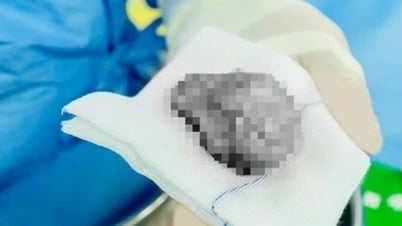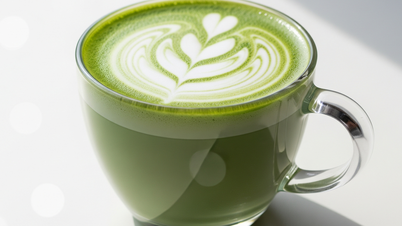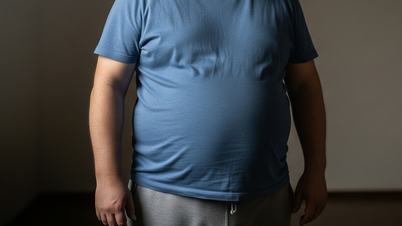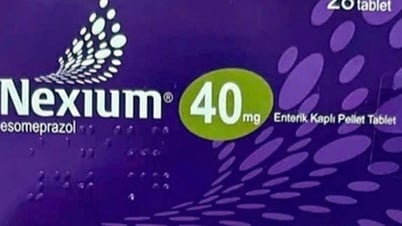According to Dr. Le Nhat Duy, University of Medicine and Pharmacy Hospital, Ho Chi Minh City - Branch 3, below are some health exercises and living habits that are especially good for people with cerebral anemia, or people who want to prevent this disease.

Close your eyes and breathe deeply to help calm your nerves and stabilize blood pressure.
Photo: AI
4-period breathing exercise
How to do: Sit or lie down to relax, put a pillow under your buttocks if lying down to slightly raise your hips.
Inhale gently through your nose for 4 seconds.
Hold your breath for 4 seconds.
Exhale slowly through your mouth for 4 seconds.
Hold your breath (don't inhale immediately) for 4 seconds.
Repeat 5-10 times.
Effect: Balances the autonomic nervous system, improves blood circulation, reduces stress, good for people with insomnia.
Lotus pose
How to do: Sit on a flat surface with your legs crossed and one foot placed on the opposite thigh.
Keep your back straight, neck straight, head slightly bowed.
Place both hands lightly on your knees, palms facing up.
Close your eyes, breathe deeply, maintain for 5-10 minutes or longer if possible.
Effect: Sedative, stabilizes blood pressure, helps increase blood flow to the brain.

Massaging the head and neck acupoints helps stimulate blood circulation in the brain, reduce headaches, and improve sleep.
Illustration: AI
Massage the head and neck acupressure points
How to do: Use your fingertips to gently massage and press the acupressure points such as: Baihui (top of head), Fengchi (back of neck), temples, and indang (between the eyebrows).
Press each point for 1-2 minutes, combined with slow breathing.
Effect: Stimulates cerebral blood circulation, reduces headaches, improves sleep.
Doctor Nhat Duy noted that people should practice the above exercises on an empty stomach (best to practice 1-2 hours after eating) and practice in a quiet, airy place. If you have a special underlying medical condition such as severe high blood pressure, cardiovascular disease... you should consult your doctor before practicing.
Some other habits to prevent cerebral anemia
Regular exercise : Maintaining daily exercise helps prevent and improve cerebral anemia and cardiovascular and metabolic diseases.
“Everyone should maintain regular moderate-intensity exercise (brisk walking, housework) 150 minutes/week, 30 minutes/day; or 75 minutes/week for vigorous-intensity exercise (jogging, swimming). The important thing is to be able to maintain regular exercise, at least 5 days/week to improve health, promote blood circulation, and enhance immunity,” said Dr. Nhat Duy.
Maintain good sleep : The average sleep time of an adult is 6-8 hours. According to traditional medicine, sleep time should be before 11pm so that the body can rest and the blood and energy can circulate properly day and night. In addition, to have good sleep, you need to pay attention to:
- Avoid using electronic devices 30 minutes before going to bed.
- Avoid using stimulants such as coffee, tobacco, alcohol, etc. 3-4 hours before going to bed.
- Make sure the bedroom temperature is moderate, the lighting is dark enough, and the space is quiet.
Stress control : This is one of the factors that increase the risk of cerebral ischemia. Therefore, stress control needs attention: Mental training; avoid excessive anxiety, balance between work and rest; consult a psychologist when necessary.
Do not smoke, limit alcohol and coffee : Stimulants cause blood vessels to constrict, reducing blood flow to the brain.
Healthy nutrition : Increase brain-healthy foods such as fatty fish, fruits, green vegetables, whole grains, walnuts, almonds, etc. Limit harmful foods such as fried foods, animal fats, fast foods and refined sugar.
“The brain is an organ that is very sensitive to lack of oxygen. When maintaining a healthy lifestyle, blood vessels will be flexible, blood flow to the brain will be smooth, reducing the risk of cerebral ischemia. A nutrient-rich diet helps support brain cells to recover and regenerate, supporting long-term treatment and disease prevention,” added Dr. Nhat Duy.
Source: https://thanhnien.vn/tap-ngay-cac-bai-tap-sau-de-phong-ngua-cai-thien-tinh-trang-thieu-mau-nao-185250618011134474.htm









































































































Comment (0)